The Gator Trio tonneau cover system presents multiple operational challenges that warrant thorough analysis.
Technical evaluations reveal recurring issues across installation protocols, structural integrity, and performance metrics.
While the manufacturer promotes enhanced cargo protection and aerodynamic benefits, users consistently report specific vulnerabilities that impact functionality.
Understanding these critical limitations enables vehicle owners to implement preventive measures and make informed decisions regarding their truck bed coverage solutions.
Installation Complexity and Rail Attachment Issues
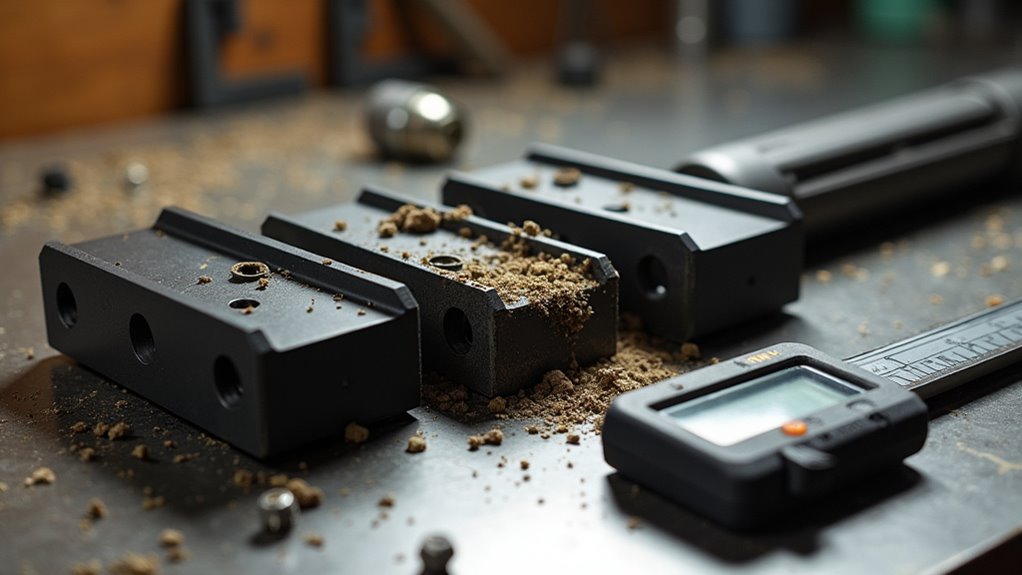
The complexity of Gator Trio cover installation presents significant challenges for users, particularly regarding rail attachment mechanisms.
The rail system’s design exhibits fundamental flaws, with insufficient material allocation for secure clamping, resulting in frequent detachment and repeated reinstallation attempts.
Users consistently report difficulties interpreting the provided instructions, necessitating supplementary guidance through alternative resources or professional assistance.
The installation complexity is further compounded by environmental factors, especially cold weather conditions, which adversely affect the clamps’ ability to maintain secure attachment to bed rails.
The inadequate performance of the clamping mechanism manifests in persistent rail detachment post-installation, indicating a systemic issue with the product’s engineering.
These technical shortcomings have led to widespread user frustration and diminished functionality of the covering system.
Water Leakage at Corner Seals
While Gator Trio covers provide substantial bed protection, significant water intrusion occurs at their corner seals, compromising the system’s waterproofing capabilities.
The front corners particularly demonstrate vulnerability, with water accumulation creating moisture exposure risks for stored equipment.
The inherent design limitations of corner seals necessitate supplementary solutions, as standard weather stripping proves inadequate for complete waterproofing.
Users frequently report the need for custom modifications, implementing additional sealing materials to enhance corner protection.
Although integrated drainage systems in Tacoma beds help mitigate water pooling, the persistent corner seal issues require intervention for ideal functionality.
These structural deficiencies in the corner seal design create an ongoing challenge for maintaining dry storage conditions, prompting many users to seek aftermarket solutions for enhanced water leakage prevention.
Clamp Durability and Failure Concerns
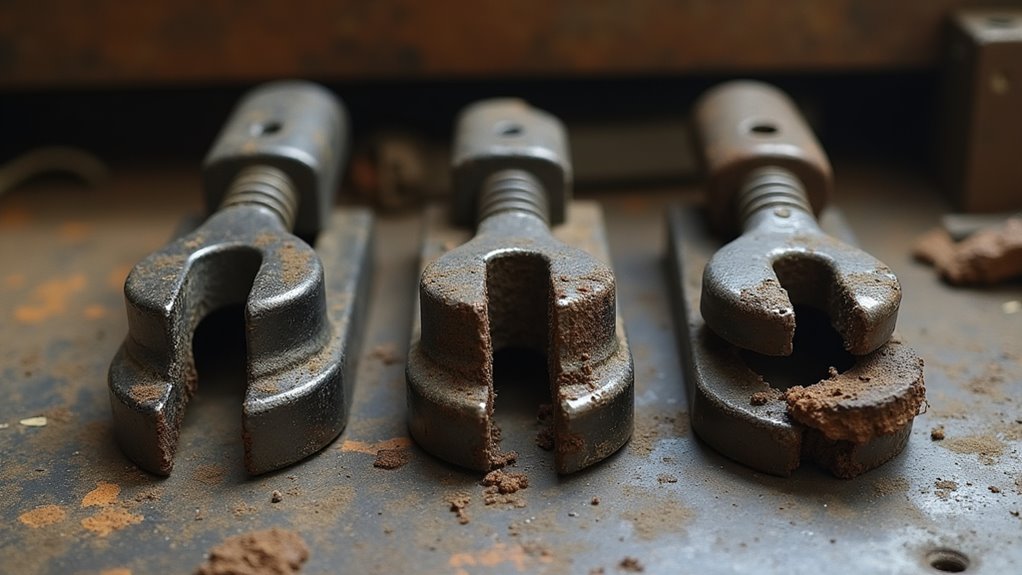
Beyond water sealing challenges, structural integrity issues manifest prominently in Gator Trio’s clamp system design.
Users consistently report compromised clamp durability, with factory-supplied components exhibiting premature failure during routine operation.
The inadequate rail lip engagement on Ranger beds compounds these structural deficiencies.
| Clamp Issue | Impact Analysis |
|---|---|
| Initial Fitment | Inconsistent grip strength |
| Long-term Use | Progressive deterioration |
| Rail Engagement | Insufficient contact surface |
| Bump Response | Detachment vulnerability |
| System Longevity | Accelerated wear patterns |
The Gator tonneau’s clamp system demonstrates systematic design limitations, necessitating potential aftermarket solutions or manufacturer revisions.
Community feedback indicates widespread concerns regarding the mounting mechanism’s reliability, suggesting a fundamental need for engineering improvements to maintain cover security during vehicle operation.
Noise and Rattling During Transit
Persistent acoustic disturbances plague Gator Trio’s operational performance, manifesting primarily as squeaking and rattling phenomena during vehicular transit.
Users consistently report noise patterns analogous to plastic water bottle friction, particularly pronounced when encountering road irregularities.
The cover’s acoustic issues present a complex diagnostic challenge, characterized by intermittent manifestation patterns that complicate systematic troubleshooting.
Attempted remediation through positional adjustments and clamp modifications yields limited success, compelling users to contemplate temporary cover removal pending replacement components.
Service center diagnostics confirm the mechanical nature of these disturbances, effectively ruling out user error as a primary cause.
This persistent noise generation considerably impacts user experience, with operators expressing clear preference for identifiable mechanical malfunctions over the current unpredictable acoustic interference during vehicle operation.
Weather Stripping Deterioration
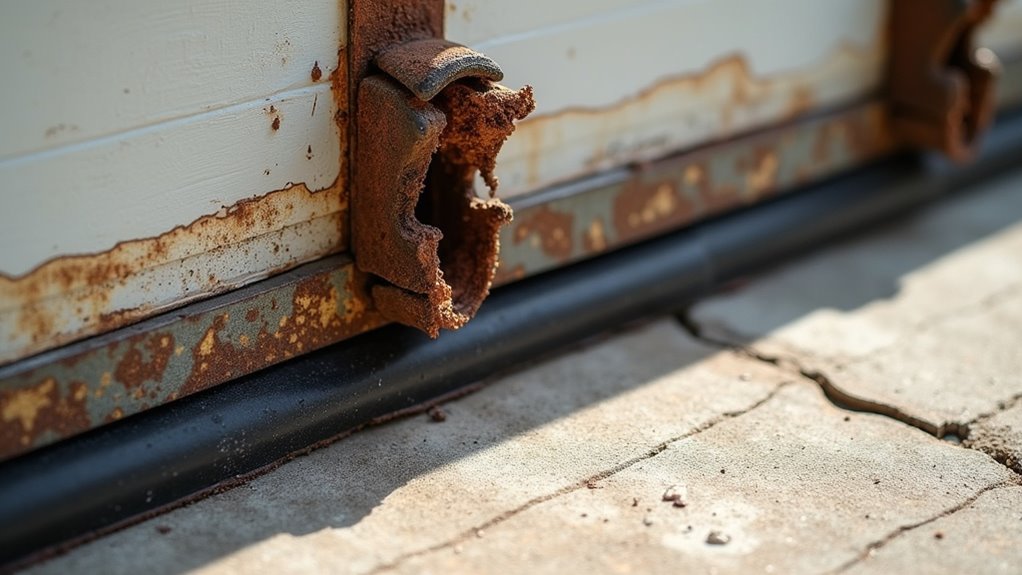
Environmental exposure progressively compromises the structural integrity of Gator Trio’s weather stripping components, manifesting in material degradation and diminished sealing efficacy.
This deterioration creates vulnerabilities in the tonneau cover’s defense against water intrusion, particularly when subjected to harsh climatic conditions.
Critical analysis reveals that improper installation procedures exacerbate these issues, creating gaps that compromise the system’s waterproofing capabilities.
Users frequently report inadequate performance of factory-installed weather stripping, necessitating supplementary sealing solutions or aftermarket modifications to maintain peak functionality.
Preventive maintenance protocols, including regular inspections and timely replacement of degraded components, are essential for preserving the cover’s protective qualities.
This proactive approach enables early detection of wear patterns and facilitates intervention before significant water penetration occurs, ensuring sustained protection of cargo areas.
Mounting Bracket Misalignment
Structural mounting bracket misalignment presents a significant engineering challenge for the Gator Trio system, primarily stemming from inadequately designed clamps and insufficient rail lip configurations on Ranger bed installations.
The mounting bracket system exhibits critical deficiencies during installation procedures, with users reporting frequent detachment of clamps upon encountering road turbulence.
Temperature variations, particularly in cold weather conditions, further compromise the tonneau cover’s structural integrity and alignment precision.
The absence of detailed installation protocols compounds these technical limitations, leaving users to navigate complex mounting procedures without adequate guidance.
Professional intervention and community-sourced solutions have emerged as viable strategies for addressing these engineering shortfalls, though the fundamental design constraints continue to impact the system’s operational reliability and mechanical stability during real-world applications.
Locking Mechanism Malfunctions
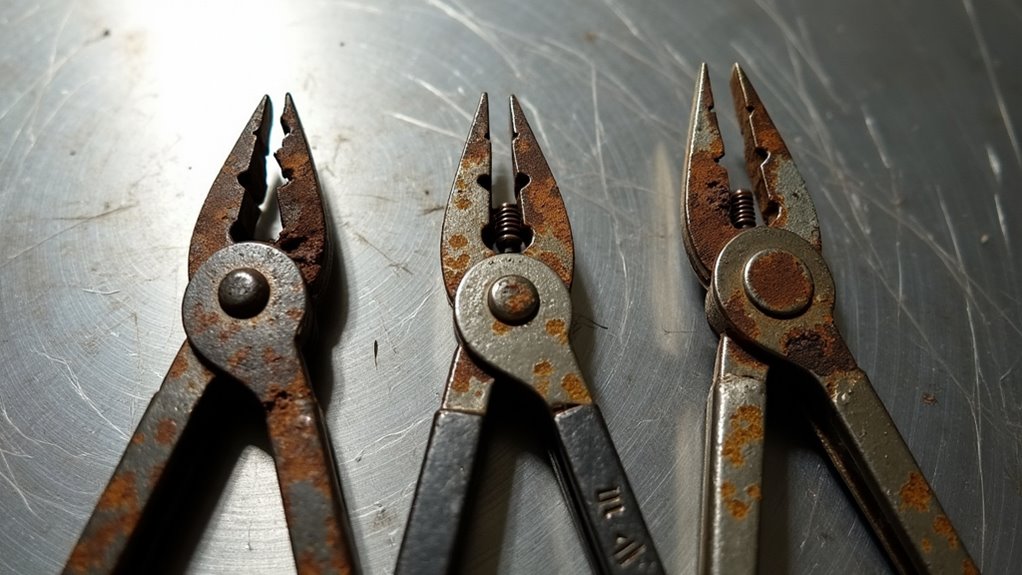
Technical deficiencies in the Gator Trio’s locking mechanism manifest through misalignment issues and engagement failures, compromising the system’s security protocols during vehicular operation.
The push-down locking mechanism exhibits operational resistance, requiring users to apply excessive force for engagement, therefore deviating from ideal functionality parameters.
Analysis reveals critical deficiencies in the hook-to-rail interface, where misalignment frequently necessitates manual intervention to achieve proper securement.
Users report systematic failures in the locking system’s engagement capability, resulting in potentially hazardous situations during transit operations.
These mechanical irregularities suggest inherent design limitations that impact the system’s reliability.
To maintain operational integrity, users must implement regular maintenance protocols and adjustment procedures, ensuring the locking mechanism maintains its intended security parameters and functional specifications.
Cold Weather Performance Challenges
Beyond locking mechanism complications, cold weather conditions introduce distinct operational challenges for the Gator Trio system.
Near-freezing temperatures markedly impair installation efficacy, particularly affecting clamp functionality and rail security.
Users report heightened difficulties with component attachment when temperatures approach 0 degrees.
The cold weather performance issues manifest through increased acoustic disturbances, including squeaking and rattling during vehicle operation.
These sonic anomalies prove challenging to diagnose due to their intermittent nature.
The structural integrity of clamps and bed rails becomes compromised in freezing conditions, elevating the risk of detachment following impact events.
While online installation resources provide supplementary guidance, professional intervention may be necessary for resolving persistent cold-weather complications.
These temperature-dependent challenges underscore the system’s vulnerability to environmental factors.
Long-Term Material Wear and Sagging
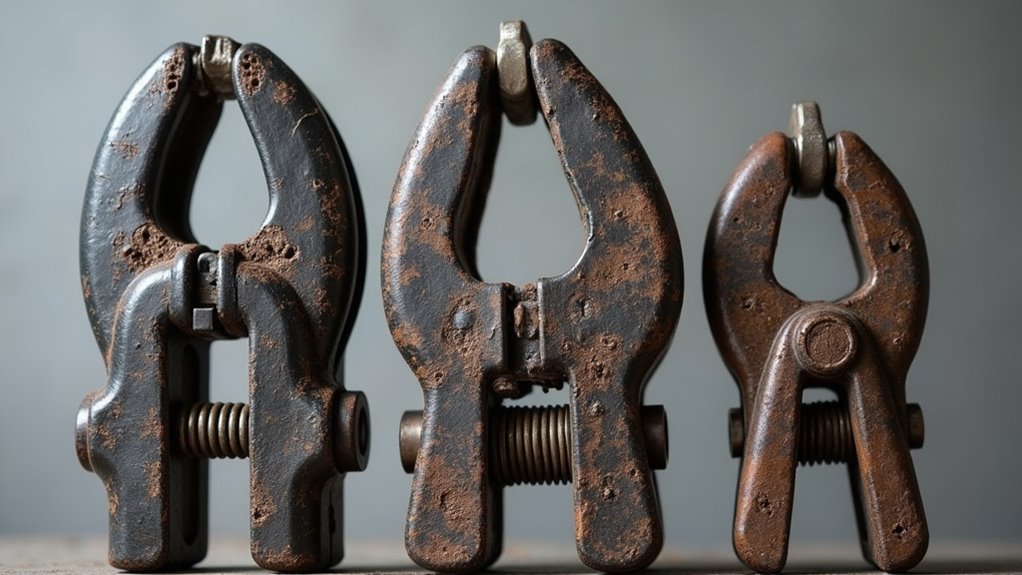
As the Gator Tri-Fold cover endures prolonged exposure to environmental stressors, material degradation manifests through progressive sagging and compromised structural integrity.
Initial aesthetic appeal diminishes as the cover’s molecular structure weakens under constant UV radiation and temperature fluctuations.
The long-term material performance exhibits significant deterioration, particularly evident in the cover’s inability to maintain its original form.
Users report increasing water infiltration due to degraded sealing capabilities, compromising the cover’s primary protective function.
The sagging phenomenon accelerates with regular usage patterns, indicating potential deficiencies in the material composition and structural support system.
This degradation pattern suggests inherent vulnerabilities in the design architecture, potentially limiting the product’s serviceable lifespan and utility for owners seeking sustained protection for their cargo area.
Truck Bed Rail Compatibility Problems
While Gator tonneau covers promise secure truck bed protection, widespread compatibility issues between their clamp mechanisms and various truck bed rail configurations present significant operational challenges.
Analysis reveals critical design limitations affecting clamp-to-rail interface integrity, particularly in adverse weather conditions.
| Compatibility Factor | Impact Assessment |
|---|---|
| Rail Lip Design | Insufficient grip surface |
| Material Contact | Inadequate clamping pressure |
| Weather Effects | Reduced security in cold |
| Clamp Stability | Frequent readjustment needed |
| Structural Risk | Potential bed rail damage |
The insufficient bed rail lip coverage compromises the tonneau’s mounting stability, necessitating frequent readjustment and raising concerns about potential structural damage.
Cold weather conditions further exacerbate these compatibility issues, leading to decreased clamp effectiveness and increased risk of cover displacement during vehicle operation.
FAQs
Is Gator a Good Tonneau Cover?
Gator tonneau covers demonstrate moderate installation ease but variable durability compared to competitors. Analysis indicates mixed performance metrics, with reported issues in weather resistance and structural integrity, suggesting consumers evaluate alternatives for ideal long-term satisfaction.
Do Gator Covers Have a Warranty?
Like a shield protecting warriors, Gator Covers stand behind their products with a limited lifetime warranty. The extensive warranty details address cover durability and manufacturing defects, requiring proper documentation for claim submission.
Who Makes the Best Tonneau Cover for Trucks?
Leading tonneau brands BAK Industries, Truxedo, and Gator compete for market dominance. BAK Revolver X2’s superior tonneau cover features, including enhanced security and weather resistance, establish it as an industry benchmark for truck bed protection.
Are Rough Country Tonneau Covers Any Good?
Rough Country tonneau covers demonstrate exceptional durability, withstanding extreme weather conditions and pressure washing. Their rapid 15-minute installation process and robust construction at $249.99 make them a highly viable option for freedom-seeking truck owners.
Final Thoughts
The Gator Trio’s multifaceted deficiencies, coincidentally identified across diverse geographical regions and vehicle applications, manifest in structural vulnerabilities and operational inefficiencies.
Analysis reveals correlations between environmental stressors and systemic failures, particularly in sealing mechanisms and attachment protocols.
These empirical observations necessitate thorough engineering modifications to address the interconnected matrix of performance limitations and material degradation patterns.
